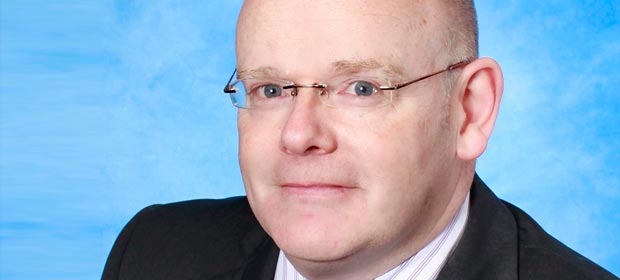Phelim Quinn, Director of Regulation, Health Information and Quality Authority, outlines what managers might expect if their facilities are inspected by HIQA in the coming months.
One of the key motivations for the Health Information and Quality Authority’s programme of inspections against the National Standards for the Prevention and Control of Healthcare Associated Infections is to drive improvements in hand hygiene culture and practice within our hospital system.

Since our first round of inspection reports were published earlier this year, there have been some indications of improved staff awareness of hand hygiene practice in some hospitals subsequently inspected by us. However, a culture of good hand hygiene practice has yet to become consistently and fully embedded.
Good hand washing and good hand hygiene practice does protect patients. It has been evidenced as the single most important measures to protect patients from the risk of Healthcare Associated Infections. Our inspections show further work is required to change people’s everyday behaviours and culture in this area.
Assessment process
To date HIQA has assessed over 20 hospitals all over the country. As part of HIQA’s commitment to provide assurance on the quality and safety of our healthcare services we will continue to commit resources to this important inspection programme in all acute hospitals throughout this year and into 2014. The programme, which is based on international regulatory practice, will include both unannounced and announced assessments. We believe that these inspections will form the basis of increased public confidence in services and in healthcare regulation in Ireland. To this end, we thought it would be useful for managers to outline what they might expect if their facilities are inspected. The table below sets out an accurate summary of the current process.
A summary of our inspection processes
| Announced | Unannounced |
|---|---|
|
|
The inspection and monitoring process is currently under review. For an unannounced inspection the first meeting of the day is a courtesy meeting. The lead HIQA inspector meets with the manager, CEO or director of nursing to inform them that the Authority is undertaking a monitoring assessment – the other inspector(s) are at this point in the emergency department – and to ask if there are any wards in the hospital that should be avoided for any reason. This could be due to an outbreak, or there could be oncology ward with immunosuppressed patients etc.
The inspection and monitoring process is currently under review.
The closing meeting at the end of the assessment is to thank the manager/ CEO/ director of nursing, to inform him/her of any immediate serious risks and to inform them of what happens next in the process. For the announced assessments, the introductory meeting is longer. It enables the HIQA Authorised Persons to introduce themselves, remind the management team of the process during the day, to request any extra information/documentation, and to ask if there are any wards in the hospital that should be avoided for any reason. The closing meeting at the end of the assessment is to thank the manager/ CEO/ director of nursing, to inform of any immediate serious risks and to inform them of what happens next in the process.
Snapshot of findings so far
HIQA, in its initial round of inspections, found that poor hand-washing practice in many hospitals has the potential to put patients at risk of acquiring a Healthcare Associated Infection.
During Phase 1 of the programme, we carried out unannounced inspections in 12 hospitals covering 30 clinical areas. During the unannounced inspections, we observed 291 opportunities when staff should have washed their hands. Inspectors noted that of the 291 opportunities 191 (66%) opportunities were taken by staff to wash their hands. Of those 191 only 50% were observed to comply with best practice hand hygiene technique.
We observed 291 opportunities when staff should have washed their hands.
In addition to the unannounced inspections we carried out two announced inspections during Phase 1 of the programme, which focused on a broader range of topics including governance arrangements within hospitals for the management of infection prevention and control, antimicrobial stewardship and the management of invasive medical devices. During these inspections, we observed 58 hand hygiene opportunities and found that 47 of the 58 (81%) were taken by staff to wash their hands. Of those, 74% were observed to comply with best practice hand hygiene technique.
Why is this programme important for managers?
The National Standards provide a framework which aims to create a culture and practices that will lead to significantly reduced levels of Healthcare Associated Infections.
However, the Standards and HIQA’s programme of inspection cannot achieve this aim on their own. Standards need local implementation frameworks managed and led by local managers. This is a challenge for hospital management, however, we are confident many managers will lead proactively on these challenges. Already, there is plenty of evidence of clean clinical areas and good procedures in place to minimise the risk of harm to patients from Healthcare Associated Infections. The work of hospital managers and staff in this regard should be acknowledged. Central to each hospital’s response to a HIQA inspection will be its quality improvement plan (QIP). All hospitals have to develop and publish a QIP that prioritises the improvements necessary to address any issues of non-compliance identified.

